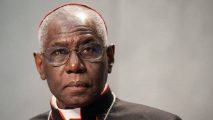Categories
Archives
- April 2024
- March 2024
- February 2024
- January 2024
- December 2023
- November 2023
- October 2023
- September 2023
- August 2023
- July 2023
- June 2023
- May 2023
- April 2023
- March 2023
- February 2023
- January 2023
- December 2022
- November 2022
- October 2022
- September 2022
- August 2022
- July 2022
- June 2022
- May 2022
- April 2022
- March 2022
- February 2022
- January 2022
- December 2021
- November 2021
- October 2021
- September 2021
- August 2021
- July 2021
- June 2021
- May 2021
- April 2021
- March 2021
- February 2021
- January 2021
- December 2020
- November 2020
- October 2020
- September 2020
- August 2020
- July 2020
- June 2020
- May 2020
- April 2020
- March 2020
- February 2020
- January 2020
- December 2019
- November 2019
- October 2019
- September 2019
- August 2019
- July 2019
- June 2019
- May 2019
- April 2019
- March 2019
- February 2019
- January 2019
- December 2018
- November 2018
- October 2018
- September 2018
- August 2018
- July 2018
- June 2018
- May 2018
- April 2018
- March 2018
- February 2018
- January 2018
- December 2017
- November 2017
- October 2017
- September 2017
- August 2017
- July 2017
- June 2017
- May 2017
- April 2017
- March 2017
- February 2017
- January 2017
- December 2016
- November 2016
- October 2016
- September 2016
- August 2016
- July 2016
- June 2016
Featured
Most Commented Posts
 4 Anglophone detainees killed in Yaounde
4 Anglophone detainees killed in Yaounde
19 comments Chantal Biya says she will return to Cameroon if General Ivo Yenwo, Martin Belinga Eboutou and Ferdinand Ngoh Ngoh are sacked
Chantal Biya says she will return to Cameroon if General Ivo Yenwo, Martin Belinga Eboutou and Ferdinand Ngoh Ngoh are sacked
13 comments Anglophone Nationalism: Barrister Eyambe says “hidden plans are at work”
Anglophone Nationalism: Barrister Eyambe says “hidden plans are at work”
12 comments The Anglophone Problem – When Facts don’t Lie
The Anglophone Problem – When Facts don’t Lie
12 comments Largest wave of arrest by BIR in Bamenda
Largest wave of arrest by BIR in Bamenda
10 comments
Latest Tweets
Featured
-

Dortmund sink Atletico to reach Champions League semi-finals
-

US: Trump media group plans TV streaming platform
-

Cameroon is broken: Who can fix it?
-

Cameroonian beer and soft drinks exports soar by 73% and 46.6% in 2022
-

Southern Cameroons Crisis: 2 teachers abducted in the North West
-

World Bank says despite high potential, 75 vulnerable economies face ‘Historic Reversal’
-

Cardinal Robert Sarah says Western prelates have lost their nerve
© Cameroon Concord News 2024





30, January 2021
Visiting Cardinal seeks to resolve Anglophone crisis 0
The Vatican’s Secretary of State kicked off a week-long trip to Cameroon on Thursday in which he will visit a region blighted by clashes between government forces and separatists.
During his visit from Jan. 28 to Feb. 3, Cardinal Pietro Parolin is scheduled to meet with the local authorities and Cameroon’s Catholic bishops in the country’s capital, Yaoundé, and visit the English-speaking Northwest Region.
Local media in Cameroon have reported that the cardinal will likely use his visit to work towards the resolution of the dispute known as the Anglophone crisis.
Both the Holy See and the local Church have appealed for dialogue to end the strife. One of the Catholic leaders who has played an active role in seeking a resolution is Cardinal Christian Tumi, who was kidnapped by gunmen in Cameroon’s Northwest Region on Nov. 5.
A video published on social media showed the 90-year-old cardinal calmly responding as one of his captors confronted him about his calls for separatist fighters in Cameroon to lay down their arms. To this, the cardinal responded: “I will preach what is the truth with pastoral conviction and biblical conviction.”
“Nobody has the right to tell me to preach the contrary because I was called by God,” Cardinal Tumi said. He was released by his kidnappers on Nov. 6.
The crisis in Cameroon is rooted in country’s colonial history. The area was a German colony in the late 19th century, but the territory was divided into British and French mandates after the German Empire’s defeat in World War I. The mandates were united in an independent Cameroon in 1961, but English-speakers have complained ever since of marginalization by the French-speaking majority.
There is now a separatist movement in the Southwest and Northwest Regions, which were formerly the British Cameroons. Violence escalated in October when gunmen attacked Mother Francisca International Bilingual Academy, a school in Kumba in Cameroon’s Southwest region, on Oct. 24 and opened fire on students in a classroom. Seven students aged 12 to 14 were killed.
Pope Francis prayed on Oct. 28 that “the tormented regions of the northwest and southwest of [Cameroon] may finally find peace.”
In Cameroon’s Northwest Region, Parolin will offer Mass on Jan. 31 at the Catholic cathedral in Bamenda, where he will give the pallium to Archbishop Andrew Nkea Fuanya.
Nkea, 55, was appointed archbishop of Bamenda in December 2019. He is known for his emphasis on family, community, and traditional values.
At the 2018 meeting of the Synod of Bishops on young people, faith, and vocational discernment, Nkea, who was the bishop of Mamfe at the time, said that the Church in Cameroon and many parts of Africa was growing — including among young people.
“My churches are all bursting, and I don’t have space to keep the young people,” Nkea said during a Vatican press conference in Oct. 2018. “And my shortest Mass would be about two and a half hours.”
A 2018 study by the Pew Research Center found that church attendance and prayer frequency was highest in sub-Saharan Africa and lowest in Western Europe. Four out of five Christians in Cameroon said that they prayed every day.
During the synod on young people, Nkea credited the Church’s growth in Cameroon to the alignment between Church teaching and the values of Cameroonian society, and the strength of the family as a cultural institution.
“People ask me, ‘Why are your churches full?’” Nkea said in 2018. “Coming from Africa, the family is a very, very strong institution.”
“We come from a culture in which tradition normally is handed from one generation to the other.”
“Our traditional values still equate to the values of the Church, and so we hand over the tradition to our young people undiluted and uncontaminated,” he continued, noting that a strong sense of community in the Church is something “very important that Europe can learn from Africa.”
Source: The Catholic News Agency